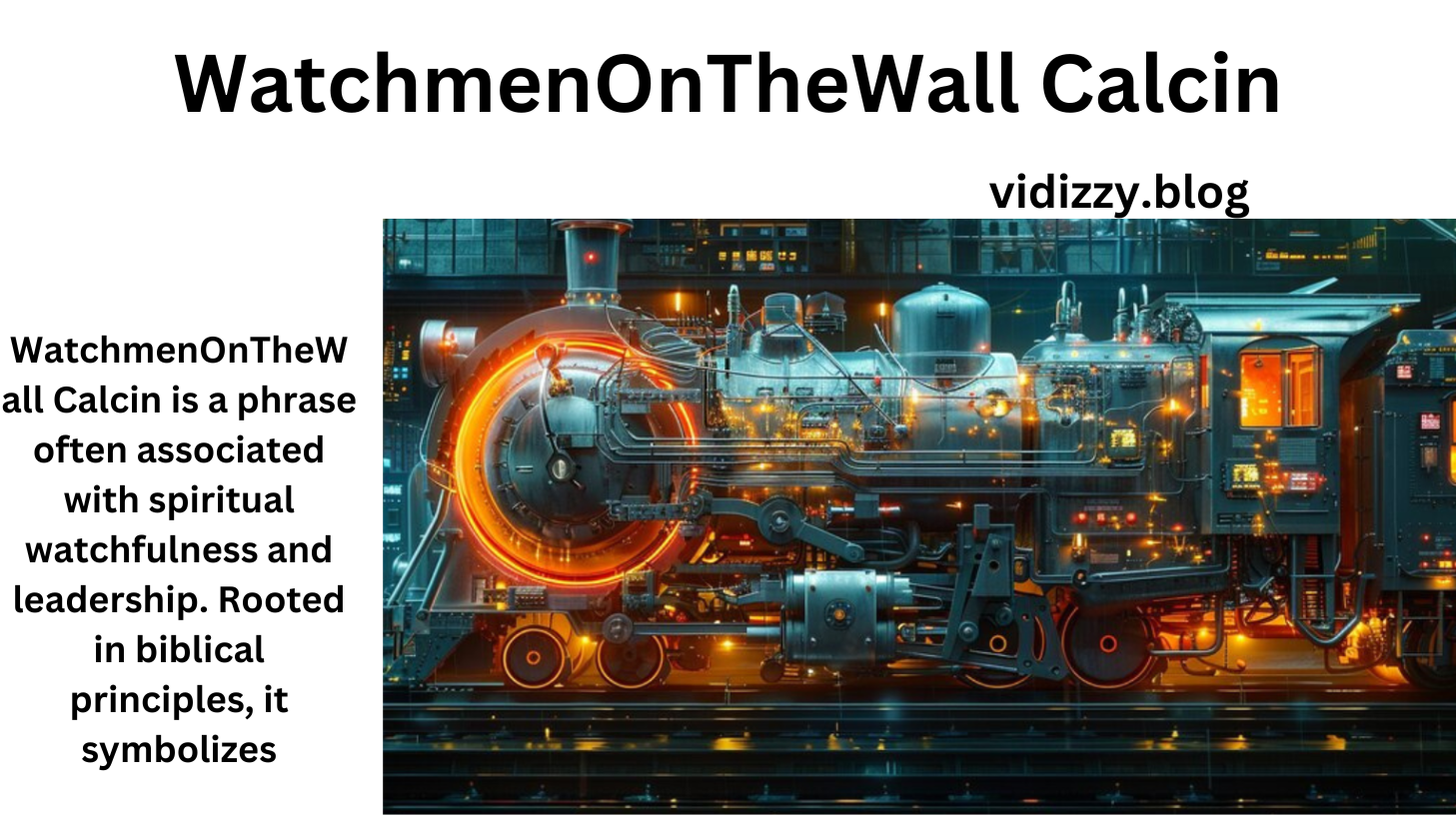
WatchmenOnTheWall Calcin
The term “WatchmenOnTheWall Calcin” represents a unique concept, intertwining faith, leadership, and vigilance. Whether you are exploring the theological roots, practical applications, or the broader impact of this idea, understanding its essence is key to grasping its significance. This article dives deep into WatchmenOnTheWall Calcin, unpacking its meaning, origins, and role in today’s world. By the end, you’ll gain a clear picture of its relevance and how it inspires individuals and communities.
Understanding WatchmenOnTheWall Calcin
What is WatchmenOnTheWall Calcin?
WatchmenOnTheWall Calcin is a phrase often associated with spiritual watchfulness and leadership. Rooted in biblical principles, it symbolizes the responsibility to guard, guide, and intercede on behalf of others. The term “watchmen” originates from the ancient practice of stationing sentinels on city walls to alert inhabitants of impending danger.
In this context, “Calcin” adds a unique layer, often interpreted as a metaphor for purification, strengthening, or refinement. Together, the term encapsulates the idea of spiritually refined guardianship.
Core Elements of WatchmenOnTheWall Calcin
- Vigilance: Remaining spiritually alert to protect against moral or societal threats.
- Intercession: Praying and mediating on behalf of individuals or communities.
- Leadership: Guiding others with wisdom and integrity.
The Origins of WatchmenOnTheWall Calcin
Biblical Foundations
The concept of a “watchman” is deeply rooted in the Bible, with references in books such as Ezekiel and Isaiah. These watchmen were tasked with observing and warning others, often acting as intermediaries between God and His people.
Key biblical passages include:
- Ezekiel 33:6: “But if the watchman sees the sword coming and does not blow the trumpet to warn the people… I will hold the watchman accountable for their blood.”
- Isaiah 62:6: “I have posted watchmen on your walls, Jerusalem; they will never be silent day or night.”
The addition of “Calcin” may reflect a modern interpretation, emphasizing the need for personal and communal refinement in fulfilling this role.
Historical Context
In ancient cities, watchmen played a vital role in ensuring the safety of inhabitants. Positioned atop walls, they maintained a vigilant watch over the horizon, alerting the city to potential threats. This physical role has since evolved into a spiritual and symbolic one, represented by the concept of WatchmenOnTheWall Calcin.
The Role of WatchmenOnTheWall Calcin in Modern Times
Spiritual Leadership
WatchmenOnTheWall Calcin embodies the qualities of a spiritual leader who remains steadfast in guiding others. Such leaders prioritize:
- Moral Integrity: Leading by example and upholding ethical standards.
- Discernment: Recognizing spiritual and societal challenges.
- Mentorship: Encouraging others to grow in faith and character.
Community Building
In today’s interconnected world, WatchmenOnTheWall Calcin serves as a unifying force. By fostering a sense of collective responsibility, it inspires communities to work together for the greater good.
Key initiatives include:
- Prayer Networks: Organized efforts to pray for specific causes or regions.
- Outreach Programs: Providing support and resources to underserved populations.
- Educational Workshops: Teaching the principles of watchfulness and spiritual growth.
Advocacy and Social Impact
Beyond spiritual realms, WatchmenOnTheWall Calcin encourages active participation in societal issues. Modern-day watchmen may advocate for justice, equality, and compassion, addressing:
- Poverty and Inequality: Supporting initiatives that uplift marginalized groups.
- Ethical Leadership: Promoting transparency and accountability in governance.
- Environmental Stewardship: Encouraging sustainable practices.
Key Principles of WatchmenOnTheWall Calcin
Personal Refinement
“Calcin” suggests a process of purification, symbolizing the importance of self-improvement. This principle encourages individuals to:
- Reflect on their actions and motivations.
- Pursue spiritual growth and maturity.
- Cultivate humility and compassion.
Collaborative Efforts
The role of a watchman is not solitary; it requires collaboration with others. Building strong networks and fostering unity are essential components of WatchmenOnTheWall Calcin.
Faith and Action
While rooted in faith, WatchmenOnTheWall Calcin emphasizes the importance of actionable steps. This balance between belief and practice ensures meaningful impact.
How to Embrace WatchmenOnTheWall Calcin
Steps to Get Started
- Deepen Your Understanding: Study the biblical and historical context of watchmen.
- Engage in Prayer and Meditation: Develop a consistent spiritual practice to remain connected and vigilant.
- Seek Mentorship: Learn from seasoned leaders who exemplify the principles of WatchmenOnTheWall Calcin.
- Take Action: Identify areas where you can contribute to your community and begin making a difference.
Challenges and Solutions
- Burnout: Maintaining vigilance can be taxing. Regular rest and spiritual renewal are essential.
- Resistance: Not everyone may understand or support this role. Patience and perseverance are key.
- Balancing Roles: Juggling responsibilities requires effective time management and prioritization.
The Impact of WatchmenOnTheWall Calcin
Success Stories
Numerous individuals and groups inspired by WatchmenOnTheWall Calcin have achieved remarkable results, including:
- Establishing thriving prayer networks that address global issues.
- Launching community initiatives that have transformed lives.
- Advocating for policy changes that promote fairness and equity.
Long-Term Vision
The enduring goal of WatchmenOnTheWall Calcin is to cultivate a world where vigilance, leadership, and compassion drive meaningful change. By inspiring individuals to embrace this role, the concept fosters a legacy of positive impact.
Conclusion
WatchmenOnTheWall Calcin represents more than a concept; it is a call to action. Rooted in biblical traditions and enriched by modern interpretations, it inspires individuals to take on roles of leadership, vigilance, and intercession. By understanding and embracing its principles, anyone can contribute to building stronger, more compassionate communities.